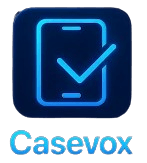Stop Credence Resource Management Calls
Is Credence Resource Management LLC constantly calling and harassing you? Does your phone ring every day, several times per day, because Credence debt collection is calling you to demand payment? Are you being threatened with legal action for a time-barred debt? Has credence debt collector ever used abusive or profane language when speaking with you on the phone? If so, Credence Resource Management LLC may be violating your legal rights. Stop collection calls.
The Fair Debt Collection Practices Act (FDCPA), also known as the FDCPA, protects consumers’ rights in the context of debt collection. In other words, debt collectors must adhere to a certain set of rules when they are pursuing consumers who owe money. These rules are part of broader debt collection laws designed to prevent harassment and abuse. If a collector violates the FDCPA, you can sue the collector in court. The law allows consumers who have been victims of harassment from debt collectors to get the calls to stop in addition to recover statutory damages of up to $1,000, plus attorney fees and court costs.
Is Credence Resource Management a Scam?
No, Credence Resource Manage is legit, according to the Better Business Bureau website, They have been in business since 2013. There have been 269 customer complaints filed on the BBB website.
Who is Credence Resource Management?
Credence Resource Management is a debt collection agency headquartered in Dallas, TX. Credence Resources Management collects debts involving health care, phone, utilities and credit cards. As of October of 2018, Credence debt collection has had 272 complaints against the business.
In 2017 a New York consumer filed a class action that alleged Credence debt collector violates the Fair Debt Collection Practices Act (FDCPA). The case alleged the defendant sent the Queens County woman a collection notice over a supposed time-barred cell phone debt that was past its four-year statute of limitations. As a result, the lawsuits say the act was deceptive and meant to induce the plaintiff into payment in the hopes that she was not aware the debt in question was time-barred and, therefore, could not be the subject of collection activities.
The statute of limitations for debt varies based on the type of debt and specific state laws, making it crucial to verify debt details when dealing with collection agencies like Credence Resource Manage.
🏛️ Credence Resource Management Address:
17000 Dallas Pkwy STE 204 Dallas, TX 75248-1940
☎️ Credence Resource Management Phone Number:
(855) 880-4792
Why is Credence Resource Management Calling You?
Credence Resource Manage is a debt collection agency that specializes in collecting debts from consumers. They may be calling you for a variety of reasons, including:
- ➡️ You have an outstanding debt with a creditor that has been sent to Credence Resources Management for collection.
- ➡️ There is an error on their part, and they are contacting the wrong person.
- ➡️ You are a victim of identity theft or fraud, and someone has opened an account in your name.
If you are receiving calls from Credence Resources Management, it’s essential to understand your rights as a consumer. Debt collectors are required to follow certain rules and regulations when contacting consumers, including limits on the number of calls they can make and restrictions on the times of day they can call. Knowing your rights can help you manage these calls more effectively and ensure that you are not subjected to unfair practices by the collection agency.

Signs of Credence Debt Collector Harassment
Credence Resource Management LLC, like other debt collection agencies, may engage in harassing behavior when trying to collect debts. Recognizing these signs is crucial to protecting your rights. Here are some common indicators of harassment:
- ▶️ Repeated Phone Calls: If you receive multiple calls from Credence debt collection in a short period, it may be considered harassment. Debt collectors are not allowed to call you incessantly to pressure you into paying.
- ▶️ Threats: If a debt collector threatens to sue you, garnish your wages, or damage your credit score, it’s a sign of harassment. Such threats are often used to intimidate consumers into making payments.
- ▶️ Abusive Language: Using profanity, insults, or other abusive language is a clear sign of harassment. Debt collectors must treat you with respect and cannot use offensive language.
- ▶️ Unfair Practices: If Credence debt collector LLC engages in unfair practices, such as calling you at inconvenient times or places, it may be considered harassment. Debt collectors must adhere to specific rules about when and where they can contact you.
- ▶️ Failure to Provide Information: If the debt collector fails to provide you with clear information about the debt, including the amount owed and the name of the original creditor, it’s a sign of harassment. You have the right to know the details of the debt they are attempting to collect.
If you experience any of these signs of harassment, you should take action to protect yourself. Start by documenting the harassment, including the dates and times of the calls and the language used by the debt collector. You can also file a complaint with the (CFPB) or the Federal Trade Commission (FTC).
Key Provisions of the FDCPA include:
- ➤ Prohibition of Harassment or Abuse: Debt collectors are prohibited from engaging in conduct that harasses, oppresses, or abuses consumers. This includes tactics such as making excessive phone calls, using profane language, or making threats of violence.
- ➤ False or Misleading Representations: Debt collectors are prohibited from making false or misleading statements when attempting to collect a debt. They must accurately represent the amount owed, the consequences of non-payment, and their identity as debt collectors.
- ➤ Validation of Debts: Upon request, debt collectors must provide consumers with validation of the debt, including information about the original creditor and the amount owed. They must cease collection efforts until the debt is validated.
- ➤ Disclosure of Debt Information: Debt collectors are restricted in their ability to disclose information about a consumer’s debt to third parties. They may only contact third parties to obtain location information about the consumer, and they must identify themselves truthfully.
- ➤ Prohibition of Unfair Practices: Debt collectors are prohibited from engaging in unfair practices when attempting to collect a debt. This includes attempting to collect fees or charges not authorized by the original agreement, depositing post-dated checks prematurely, and contacting consumers at inconvenient times.
- ➤ Notification of Consumer Rights: Debt collectors must inform consumers of their rights under the FDCPA, including the right to dispute the debt and request validation. They must also provide consumers with information about how to assert their rights.
- ➤ Restrictions on Location of Contact: Debt collectors are generally prohibited from contacting consumers at their place of employment if they know or have reason to know that such communication is inconvenient.
- ➤ Fair Credit Reporting Act (FCRA): The Fair Credit Reporting Act (FCRA) plays a significant role in protecting consumer rights regarding credit reporting. It allows consumers to dispute inaccuracies in their credit reports and provides for statutory damages if a credit reporting agency violates the Act’s provisions.
The FDCPA applies only to third-party debt collectors, not to creditors collecting their own debts. It covers personal, family, and household debts, including credit card debt, medical debt, and mortgage debt, among others.
Violations of the FDCPA can result in legal action against the debt collector, including monetary damages and attorney’s fees. Consumers who believe their rights under the FDCPA have been violated may file a complaint with the (CFPB) or pursue legal action through the courts. The FDCPA serves as a vital tool in protecting consumers from abusive and unfair debt collection practices, ensuring that they are treated fairly and respectfully throughout the debt collection process.

Credence Resource Management Phone Numbers
Are you receiving any harassing phone calls from any of these numbers?
855-732-2332, 855-876-5347, 855-876-5380, 754-208-5140, 502-804-5115, 855-880-4795, 412-566-8441, 412-785-1043 805-253-7003, 805-253-7003, 805-253-7073, 502-305-2315, 844-218-3103, 844-475-9134, 855-880-4795, 210-944-1791, 317-854-0859, 317-854-0961, 408-775-7337, 512-428-8674, 601-974-3582, 855-876-5351, 855-876-5380, 855-875-4065, 855-752-9257, 336-604-0223, 510-571-2218, 865-507-1153, 855 876-5350, 855-876-5347, 754-208-5140, 346-326-1132, 346-326-1193, 502-804-5115,
You may be a victim of Credence Resource Management llc harassment. The list above is not all the numbers that Credence debt collection uses. Also, calls can be from a different number, and it still be Credence Resources Management calling you. Contact our office right away so we can start the process to stop Credence Resource Management LLC from calling you illegally. Above all, no one should live with harassment.
Stopping Harassing Collection Calls
If you believe that Credence Resource Management is harassing you with collection calls, there are steps you can take to stop the calls. Here are some options:
- ➢ Send a cease-and-desist letter to Credence Resource Management, requesting that they stop contacting you.
- ➢ Contact a debt harassment lawyer who can help you navigate the situation and protect your rights.
- ➢ File a complaint with the Federal Trade Commission (FTC) or your state’s Attorney General’s office.
Taking these steps can help you regain control and put an end to the harassment. Remember, you have the right to be treated with respect and fairness, and there are legal avenues available to protect you from abusive practices by debt collectors.
Impact Of Credence Resource Management on My Credit Report
Credence Resource Management, like other debt collection agencies, can have a significant impact on your credit score. Understanding how this happens can help you take steps to protect your financial health. Here are some ways that Credence Resource Manage can affect your credit score:
- ▶️ Negative Reporting: If you have an outstanding debt with Credence Management Resources, they may report it to the credit bureaus. This negative mark can significantly lower your credit score and remain on your credit report for up to seven years.
- ▶️ Late Payments: Missing a payment to Credence Resources Management can be reported to the credit bureaus, further damaging your credit score. Consistent late payments can have a cumulative negative effect.
- ▶️ Debt Validation: If you dispute a debt with Credence debt collector, they may request debt validation. While this process is ongoing, it can temporarily affect your credit score, especially if the debt is found to be valid.
- ▶️ Settlements: If you settle a debt with Credence Resource Management, it can be reported to the credit bureaus. While settling a debt is better than leaving it unpaid, it can still negatively impact your credit score, as it indicates that you did not pay the full amount originally owed.
To minimize the impact of Credence Management Resources on your credit score, it’s essential to communicate with them and make timely payments. You can also dispute any errors on your credit report and work to settle your debt. Regularly monitoring your credit report can help you stay on top of any changes and address issues promptly.

Credence Resource Management Lawsuits
If Credence Resources Management is unable to collect a debt from you through phone calls and letters, they may decide to file a lawsuit against you. If this happens, it’s crucial to take action quickly to protect your rights. Here are some steps you can take:
- ➡️ Respond to the lawsuit by filing an answer with the court.
- ➡️ Contact a debt defense lawyer who can help you navigate the legal process and protect your rights.
- ➡️ Consider settling the debt or negotiating a payment plan.
Ignoring a lawsuit can lead to a default judgment against you, which can have serious consequences. By taking prompt action and seeking legal advice, you can better manage the situation and explore options that may be available to you.
Credence Debt Collector Settlements and Payment Plans
Credence Resource Managem, like other debt collection agencies, may offer settlements and payment plans to help you pay off your debt. Here are some things to consider when negotiating a settlement or payment plan with Credence Resource Management LLC:
- ➤ Debt Validation: Before negotiating a settlement or payment plan, make sure that the debt is valid and that you owe the amount claimed by Credence Resource Management. Request a debt validation letter to confirm the details.
- ➤ Payment Terms: Ensure that the payment terms are clear and that you understand the amount you will be paying each month. Clarify any questions you have about the payment schedule and amounts.
- ➤ Interest Rates: Check if the settlement or payment plan includes interest rates, and if so, make sure you understand how they will be applied. Interest can significantly increase the total amount you end up paying.
- ➤ Credit Reporting: Find out how the settlement or payment plan will be reported to the credit bureaus and how it will affect your credit score. A settled debt may still negatively impact your credit, but it is generally better than an unpaid debt.
To negotiate a settlement or payment plan with Credence Resource Management LLC, you can start by contacting them and explaining your financial situation. You can also seek the help of a debt relief company or a credit counselor to help you negotiate a settlement or payment plan. Being proactive and transparent about your financial situation can lead to more favorable terms.
Removing Credence Management from Your Credit Report
If Credence Resources Management has reported a debt to your credit report, you may be able to have it removed. Here are some steps you can take:
- ▶️ Dispute the debt with the credit reporting agency.
- ▶️ Contact Credence debt collector and request that they remove the debt from your credit report.
- ▶️ Consider working with a credit repair company to help you remove the debt and improve your credit score.
Removing inaccurate or outdated information from your credit report can significantly improve your credit score and financial health. It’s important to monitor your credit report regularly and take action to correct any errors.

Debt Validation and Verification
If you receive a call or letter from Credence Resource Management, it’s essential to validate the debt to ensure that it is legitimate. Here are some steps you can take:
- ➢ Request a debt validation letter from Credence Management Resources.
- ➢ Review the letter carefully to ensure that it includes all the necessary information, such as the amount of the debt, the name of the original creditor, and the date the debt was incurred.
- ➢ If you believe that the debt is not legitimate, you can dispute it with Credence Resource Management and the credit reporting agency.
Validating and verifying debts is a crucial step in protecting yourself from fraudulent or mistaken claims. By ensuring that the debt is legitimate, you can make informed decisions about how to proceed and avoid paying for debts that are not yours.
Improving Your Credit Score
If you have an outstanding debt with Credence Resource Management, it can negatively affect your credit score. However, there are steps you can take to improve your credit score:
- ➤ Make Timely Payments: Making timely payments to Credence Resource Manage can help improve your credit score. Consistent, on-time payments demonstrate financial responsibility.
- ➤ Dispute Errors: Disputing any errors on your credit report can help improve your credit score. If Credence Resources Management has reported incorrect information, you have the right to challenge it.
- ➤ Pay Off Debt: Paying off your debt with Credence Resource Management can help improve your credit score. Reducing your overall debt load is a positive signal to credit bureaus.
- ➤ Monitor Your Credit Report: Monitoring your credit report regularly can help you identify any errors or negative reporting. Staying informed allows you to address issues promptly and maintain a healthy credit profile.
To improve your credit score, you can also consider the following:
- ➤ Credit Counseling: Seeking the help of a credit counselor can help you develop a plan to improve your credit score. They can provide personalized advice and strategies.
- ➤ Debt Consolidation: Consolidating your debt into a single loan with a lower interest rate can help improve your credit score. This approach simplifies your payments and can reduce the total interest paid.
- ➤ Credit Monitoring: Monitoring your credit report regularly can help you identify any errors or negative reporting. Many services offer alerts for changes to your credit report, helping you stay on top of your credit health.
By taking these steps, you can work towards improving your credit score and achieving better financial stability.

Credence Debt Collector Complaints
The following is a sample list of complaints filed against Credence and can be found on Pacer.gov.
- 📋 1:19-cv-04013-LDH-RLM Yang v.
- 📋 0:19-cv-61602-WPD Davila v.
- 📋 2:19-cv-01118-JCM-VCF Kanowitz v.
- 📋 1:19-cv-03932 Delgado v.
- 📋 3:19-cv-01033-LAB-NLS Kimari v.
Do You Need a Lawyer to Deal with Credence Resource Management?
If you are dealing with Credence Resource Management, you may wonder if you need a lawyer to help you navigate the debt collection process. Here are some scenarios where you may need a lawyer:
- ➡️ Harassment: If you are being harassed by Credence Resource Manage, you may need a lawyer to help you stop the harassment and protect your rights. A lawyer can guide you through the process of documenting the harassment and filing complaints.
- ➡️ Debt Validation: If you dispute a debt with Credence debt collector, you may need a lawyer to help you validate the debt and negotiate a settlement. Legal expertise can ensure that your rights are upheld and that the debt is accurately represented.
- ➡️ Lawsuits: If Credence Resource Management sues you, you will need a lawyer to represent you in court. Legal representation is crucial to defending your case and exploring possible defenses.
- ➡️ Credit Reporting: If you have errors on your credit report, you may need a lawyer to help you dispute the errors and improve your credit score. A lawyer can assist in navigating the complexities of credit reporting laws and ensuring that inaccuracies are corrected.
To find a lawyer to help you deal with Credence Resources Management, you can start by searching online for debt collection lawyers in your area. You can also ask for referrals from friends or family members who have dealt with debt collection agencies in the past. Having legal support can provide peace of mind and ensure that your rights are protected throughout the debt collection process.

CONSUMER RIGHTS LAW FIRM, PLLC
Consumer Rights Law Firm PLLC is a law firm that specializes in helping clients who are facing harassment from debt collectors in any form, including telephone communication. Contact a legal professional to stop the Credence Resource Management harassment. Our office has been assisting consumers since 2010. We have an A+ rating with the Better Business Bureau. Clients may receive not only monetary damages but also debt relief and improved credit reports if their rights are violated under the law.
Success Stories
- 🏆 “I was overwhelmed and stressed dealing with Credence Resource Management. They were relentless in their collection efforts, and I felt like I had no options. Thankfully, I found Consumer Rights Law Firm PLLC. They were incredibly knowledgeable about my rights and took immediate action on my behalf. They communicated with Credence, negotiated a fair settlement, and ultimately helped me get the debt resolved. I felt supported and empowered throughout the entire process. I highly recommend them to anyone struggling with aggressive debt collectors like Credence!”
- 🏆”Credence Resource Management was constantly calling and sending threatening letters about a debt I wasn’t even sure was mine. It was causing me so much anxiety. Consumer Rights Law Firm PLLC stepped in and handled everything. They investigated the debt, challenged Credence’s claims, and ultimately got the debt dismissed. I can’t thank them enough for taking the burden off my shoulders and protecting my rights. They are professional, responsive, and truly care about their clients.”
- 🏆 “I was facing legal action from Credence Resource Management, and I didn’t know where to turn. Consumer Rights Law Firm PLLC was a lifesaver. They explained my rights clearly, developed a strong legal strategy, and represented me in court. They were incredibly professional and effective in their approach. Thanks to their expertise, I was able to avoid a judgment and move forward with my life. If you’re dealing with Credence, don’t hesitate to contact this firm!”
FAQs
Who is Credence Resource Management and why are they calling me?
Credence Resource Management is a legitimate debt collection agency based in Dallas, TX, that acquires unpaid debts (from telecom, utilities, healthcare) and contacts you to collect them.
Is Credence Resource Management a scam or a real debt collector?
They are a real, legal debt collector, not a scam, but their practices have prompted many complaints. They must follow FDCPA rules and validate any debt you owe.
What can I do if Credence keeps calling me repeatedly?
Document each call, send a written cease-and-desist or debt validation letter, and if they continue, report them to the FTC, CFPB or consult a consumer attorney.
Can Credence Resource Management legally harass me by phone?
No. FDCPA prohibits harassment, such as repeated calls, threats, obscene language—so persistent or abusive calls are illegal.
How do I verify if I actually owe the debt they’re calling about?
Send them a written debt validation request within 30 days of contact—they must provide details like amount, original creditor—before collecting further.
Can Credence Resource Management affect my credit score?
Yes. If they report a debt to credit bureaus, it can lower your score for up to seven years unless disputed or removed.
What if the debt is old or past the statute of limitations?
They may still contact you, but you can’t be sued after the statute expires. Make sure to request validation and don’t admit guilt or make payments that could extend the statute.
Can I sue Credence Resource Management for robocalls or harassment?
Yes. You can sue under the FDCPA or TCPA if they use harassing calls, robocalls without consent, threats, or abusive conduct—and may be entitled to damages.







